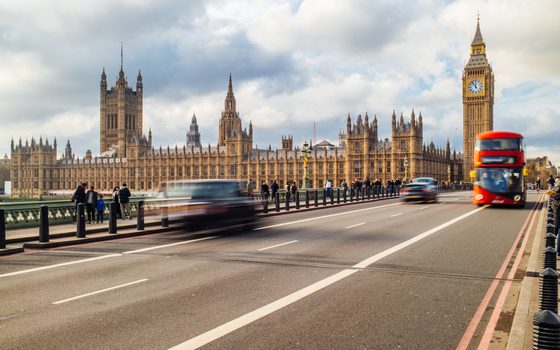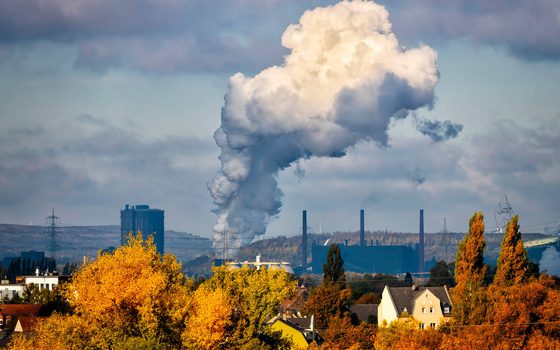10-point plan is a sign that govt. is starting to take climate seriously but has a long way to go
New Economics Foundation responds to the Government’s 10-point plan for a “green industrial revolution”
17 November 2020
Tonight, the Prime Minister’s announced a 10-point plan for a green industrial revolution as a roadmap for meeting net zero by mid-century. The plan is bold, targets the right sectors and aims to achieve the co-objective of levelling up but is not without its shortcomings. At £12bn the commitment is less than half of what France has committed and a third of Germany’s, but it sends an emphatic signal of a low-carbon future to investors.
NEF’s response to the specifics of the 10-point plan:
On transport: This sector will witness the biggest change in the coming decade as government confirms phasing out the sale of petrol and diesel cars and vans by 2030, a full 10 years ahead of their previous commitment. The plan allocates half a billion to support the uptake of electric vehicles but to really avoid a public backlash, subsidies to purchase EVs need to be targeted and those on low income and those who rely heavily on their vehicles for their livelihood need to be supported the most. Roughly £800mn of the £2.3bn committed is new and additional money.
On hydrogen: Following similar investments in this technology in France and Germany, the UK has followed suit, committing £500mn to develop a hydrogen town by 2030. Hydrogen will be an essential ingredient to cutting carbon emissions and this announcement will spur the growth of hydrogen supply chain across Britain and Europe.
On home insulation: The government has bowed to pressure from campaigners and has extended the green homes grant by another year. This is welcome but without significant support in bolstering the supply chains and skills, consumers will continue to struggle insulating and upgrading their homes. The plan also aims to reach 600,000 heat pump installations every year by 2028 – this is a 30-fold jump from today but nowhere close to a million heat pumps every year that need to be installed throughout the coming decade.
On carbon capture: The goal to capture 10 million tonnes of carbon by 2030 is commendable and comes with commitment to invest a £1bn. However, we have lost precious time in the last 5 years when in 2015, the Conservative government withdrew all funding and support for carbon capture, kneecapping an industry that it is now trying to revive. The plan also aims to create 50,000 jobs in heavy industrial sites of Britain like Teesside and Humber – this will be welcomed by many in those regions but the transition to low carbon industries has to be managed fairly as many of these regions still bear the scars of deindustrialisation over the last 4 decades.
On nature restoration: The PM’s 10-point plan is weakest in this regard. It’s target of creating 30,000 hectares of forest every year is far lower than what is needed. Far greater ambition and a much more comprehensive plan is needed to slow ecological breakdown and deliver the most fundamental component of a “greener future” — restoration of Britain’s natural world. Nature recovery is not only key to preventing climate breakdown but addressing systemic issues of equality exposed by the pandemic. Levelling up means delivering access to high quality, biodiverse, green space for all of the UK’s communities.
On skills: The plan highlights the importance of having a strong workforce with the right skills to hit the net zero target, however there is scant detail on how the government intends to achieve that outcome. Recent experience of the green homes grant suggests a significant lack of skills needed to build the UK’s future low-carbon economy.
Chaitanya Kumar, Head of Environment & Green Transition at the New Economics Foundation, said:
“The PM’s 10-point plan for a green industrial revolution marks a clear line in the sand where the UK government is finally beginning to take climate change seriously. While the £12bn commitment is still less than half of what our neighbours France have committed, it nonetheless presents a clear signal to business and investors that the future is definitively low carbon. But with the spectre of mass unemployment looming, much more needs to be done to create millions of green and low carbon social care jobs across the country.
“Decisions such as the one to end the sale of petrol and diesel vehicles by 2030 risk facing massive public backlash unless the government doubles down on supporting those on low incomes and those who rely on their vehicles for their livelihoods to receive significant subsidies for electric vehicles.
“The plan is weakest in its ability to tackle nature restoration. Far greater ambition and a much more comprehensive plan is needed to slow ecological breakdown and deliver the most fundamental component of a “greener future” – restoration of Britain’s natural world.”
Contact
Sofie Jenkinson, 07981023031, sofie.jenkinson@neweconomics.org
Notes to Editors
Chaitanya Kumar is available for comment.
The New Economics Foundation is a charitable think tank. We are wholly independent of political parties and committed to being transparent about how we are funded.






